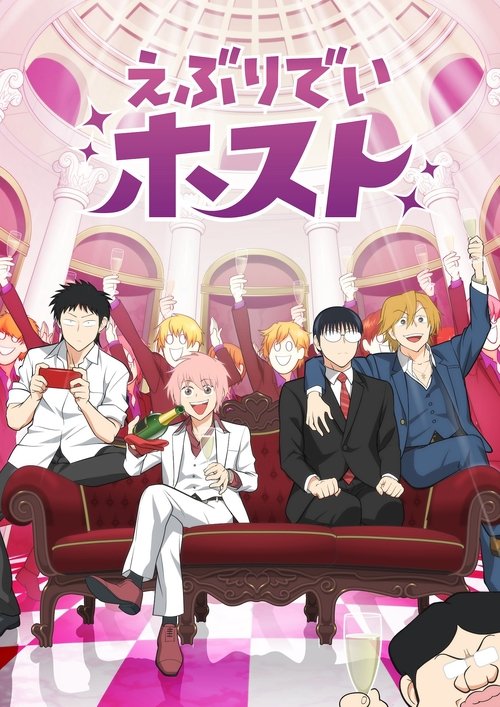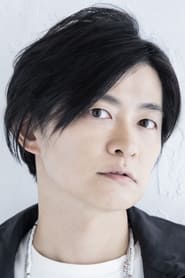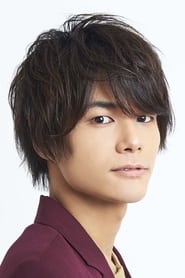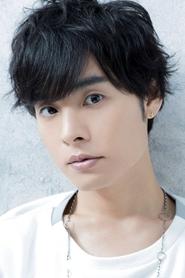Ask Your Own Question
What is the plot?
The story begins with Hajime Sekiguchi, a former life insurance salesman who falls ill and decides to quit his stressful job. Seeking a fresh start, he unexpectedly chooses to become a host at "Club One," a cozy host club located near Shinjuku. This decision marks the beginning of his new career and daily life in the host industry.
Upon joining Club One, Sekiguchi meets his colorful coworkers: a younger-brother type host with over 20 years of experience, a former idol, a rough host obsessed with social games, and several others. Each character brings their unique personality and background to the club, creating a lively and often comedic workplace environment.
Sekiguchi's first days at Club One involve learning the ropes of hosting, including how to entertain clients, manage conversations, and navigate the club's social dynamics. His inexperience leads to humorous situations and misunderstandings, but his earnestness and adaptability help him gradually improve.
Throughout the series, the hosts engage in various daily activities and interactions that highlight their quirks and relationships. For example, the experienced younger-brother type host often mentors Sekiguchi, sharing insights from his long career. The former idol struggles with adjusting to the host lifestyle, while the rough host's obsession with social games sometimes causes distractions and comic relief.
Key plot points include Sekiguchi's gradual acceptance by the club's clientele and staff, his personal growth as he gains confidence in his new role, and the camaraderie that develops among the hosts. The series also features episodic comedic scenarios such as client misunderstandings, internal club events, and the hosts' off-duty antics.
There are no major confrontations, escapes, or dramatic fights; the narrative focuses on the everyday humor and slice-of-life moments within the host club setting. The story unfolds through short episodes that emphasize character interactions and the absurdities of their work environment.
By the end of the series, Sekiguchi has firmly established himself as a valued member of Club One, having overcome his initial doubts and health issues. The hosts continue their lively, humorous lives, maintaining the club's warm and welcoming atmosphere.
What is the ending?
The ending of Everyday HOST CLUB (2025) concludes with the main characters solidifying their bonds as hosts at Club One, each embracing their unique roles and futures within the club. Hajime Sekiguchi, the protagonist, finds renewed purpose and acceptance in his new career, while his colleagues continue to grow both professionally and personally, setting the stage for ongoing camaraderie and success.
Expanding on the ending scene by scene:
The final arc opens with Hajime Sekiguchi reflecting on his journey from a life insurance salesman to a host at Club One. The scene is set in the club's lounge, where the atmosphere is lively yet intimate. Hajime, now more confident, interacts warmly with clients and fellow hosts, demonstrating his growth and comfort in this new environment.
Next, the camera shifts to the other main hosts: Kōichi, Ryōichi, Senichi, and the newer Club Trillion hosts Rui, Shin, and Mio. Each character is shown in moments that highlight their distinct personalities and contributions to the club. Kōichi, voiced by Hiro Shimono, is seen mentoring a junior host, showcasing his experience and leadership. Ryōichi and Senichi engage in lighthearted banter, reinforcing their brotherly dynamic.
A pivotal scene features Hajime and the senior host Senichi sharing a quiet conversation after hours. Senichi imparts wisdom about the importance of sincerity and connection in their work, which Hajime takes to heart. This moment underscores the theme of genuine human interaction beneath the surface of the host club's glamorous facade.
The climax involves a special event at Club One, where all hosts collaborate to entertain a high-profile client. The event is depicted with vibrant visuals and energetic exchanges, emphasizing teamwork and the hosts' dedication. Hajime's performance impresses the client, symbolizing his full integration into the club.
In the closing scenes, the hosts gather on the rooftop of the building, overlooking the city lights. They share personal reflections and express gratitude for their shared experiences. Hajime looks out over the skyline, a subtle smile indicating his contentment and readiness for the future.
The final frame lingers on the club's neon sign, "Club One," glowing warmly as the hosts' laughter fades into the night, symbolizing the enduring spirit of their community.
Regarding the fate of each main character at the story's end:
- Hajime Sekiguchi embraces his role as a host with confidence and a sense of belonging, having found a new path that suits him.
- Kōichi continues as a mentor figure, respected and steady within the club.
- Ryōichi and Senichi maintain their close friendship and support each other's growth.
- Rui, Shin, and Mio of Club Trillion are introduced as promising talents, hinting at future developments and expansions within the host scene.
This ending encapsulates the series' focus on personal reinvention, camaraderie, and the nuanced lives behind the host club's entertainment, leaving viewers with a sense of hopeful continuity.
Is there a post-credit scene?
As of the available information on the 2025 short anime adaptation of Everyday HOST CLUB, there is no specific mention or confirmation of a post-credit scene in the series. The sources detail the production and broadcast plans but do not provide details about any post-credit content or scenes.
Therefore, based on current data, Everyday HOST CLUB does not have a known post-credit scene. If such a scene exists, it has not been publicly documented or highlighted in official announcements or reviews.
What are the backgrounds and motivations of the main characters in Everyday HOST CLUB, especially Hajime Sekiguchi and his co-workers?
Hajime Sekiguchi is a former life insurance salesman who, after falling ill, decides to change careers and becomes a host at the cozy host club "Club One." His co-workers include a younger-brother type host with over 20 years of experience, a former idol, and a rough host obsessed with social games. Each character brings a unique personality and backstory that influences their interactions and roles within the club, contributing to the comedic and slice-of-life tone of the series.
How does Hajime Sekiguchi adapt to his new role at Club One, and what challenges does he face?
Hajime faces the challenge of entering an unfamiliar industry after his career change. He must learn the nuances of being a host, build relationships with clients, and navigate the dynamics among the experienced and colorful staff at Club One. His adaptation is portrayed through comedic situations and character-driven moments that highlight his growth and the club's atmosphere.
What are some notable interactions or conflicts between the characters within Club One?
The series features various interactions such as the dynamic between Hajime and the younger-brother type host who has extensive experience, as well as the former idol and the rough host obsessed with social games. These relationships often lead to humorous misunderstandings, mentorship moments, and occasional conflicts that explore their personalities and the host club environment.
Are there any specific episodes or scenes that focus on the personal histories or emotional development of the supporting characters?
While the series is primarily a gag comedy, certain episodes delve into the backgrounds of supporting characters, such as the former idol's past and the rough host's social game obsession. These moments provide depth to the characters, revealing motivations and vulnerabilities beneath their comedic exteriors, enriching the overall narrative.
How does the setting of Club One influence the story and character interactions in Everyday HOST CLUB?
Club One, described as a cozy and homely host club located a little distance from Shinjuku, serves as the central setting where all character interactions and story developments occur. Its comfortable atmosphere contrasts with the often outlandish lives of the hosts, creating a space for both comedic and heartfelt moments that shape the characters' daily experiences and relationships.
Is this family friendly?
The TV show Everyday HOST CLUB (2025) is rated PG-13, indicating it is generally suitable for teens 13 and older but may contain some content not appropriate for younger children. It features comedy and workplace themes with adult cast elements, and episodes are short (around 3 minutes each).
Potentially objectionable or upsetting aspects for children or sensitive viewers include:
- Moderate sexual content and nudity: Some scenes may contain suggestive material or partial nudity.
- Mild violence and gore: There are some mild violent scenes, but nothing extreme.
- Moderate profanity: The show includes some use of moderate language.
- Severe depiction of alcohol, drugs, and smoking: Substance use is portrayed more heavily and may be inappropriate for younger viewers or sensitive individuals.
- Mild frightening or intense scenes: Some moments may be mildly intense but not overly scary.
Overall, Everyday HOST CLUB is not strictly family-friendly for young children due to these mature themes, but it is aimed at a teenage and adult audience. Sensitive viewers or parents should be aware of the moderate sexual content, substance use, and mild violence before allowing younger viewers to watch.






